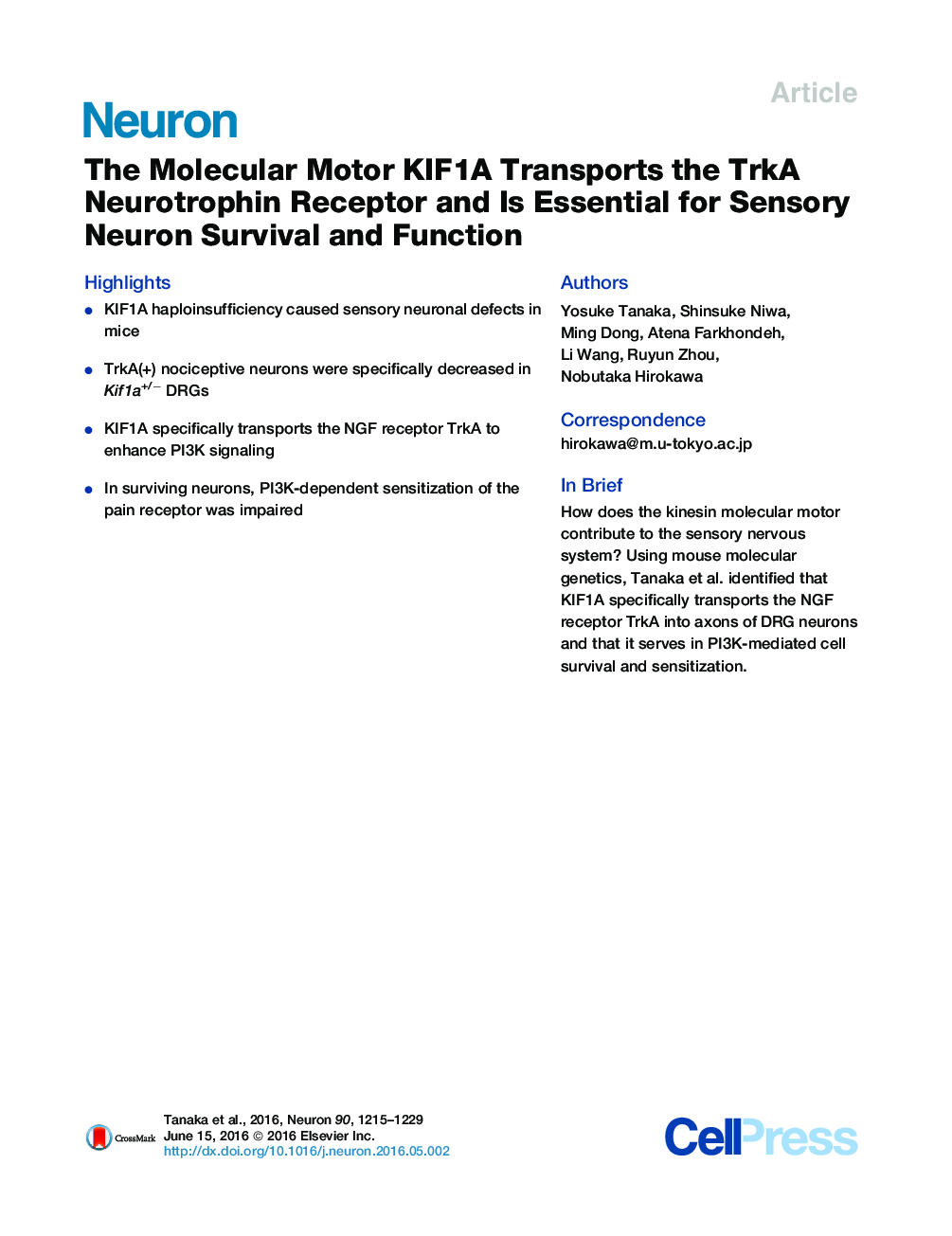| Article ID | Journal | Published Year | Pages | File Type |
|---|---|---|---|---|
| 4320683 | Neuron | 2016 | 15 Pages |
•KIF1A haploinsufficiency caused sensory neuronal defects in mice•TrkA(+) nociceptive neurons were specifically decreased in Kif1a+/− DRGs•KIF1A specifically transports the NGF receptor TrkA to enhance PI3K signaling•In surviving neurons, PI3K-dependent sensitization of the pain receptor was impaired
SummaryKIF1A is a major axonal transport motor protein, but its functional significance remains elusive. Here we show that KIF1A-haploinsufficient mice developed sensory neuropathy. We found progressive loss of TrkA(+) sensory neurons in Kif1a+/− dorsal root ganglia (DRGs). Moreover, axonal transport of TrkA was significantly disrupted in Kif1a+/− neurons. Live imaging and immunoprecipitation assays revealed that KIF1A bound to TrkA-containing vesicles through the adaptor GTP-Rab3, suggesting that TrkA is a cargo of the KIF1A motor. Physiological measurements revealed a weaker capsaicin response in Kif1a+/− DRG neurons. Moreover, these neurons were hyposensitive to nerve growth factor, which could explain the reduced neuronal survival and the functional deficiency of the pain receptor TRPV1. Because phosphatidylinositol 3-kinase (PI3K) signaling significantly rescued these phenotypes and also increased Kif1a mRNA, we propose that KIF1A is essential for the survival and function of sensory neurons because of the TrkA transport and its synergistic support of the NGF/TrkA/PI3K signaling pathway.
